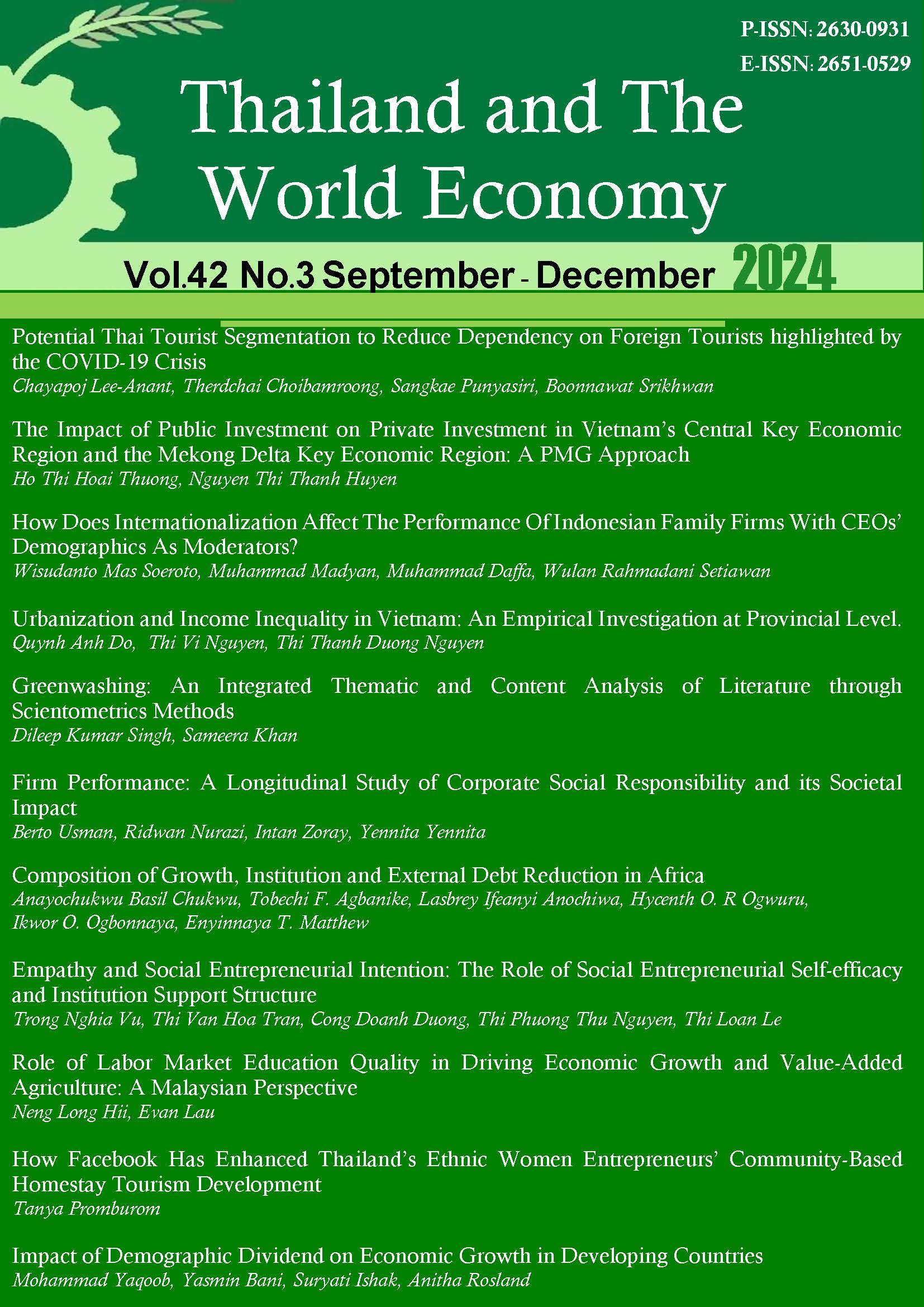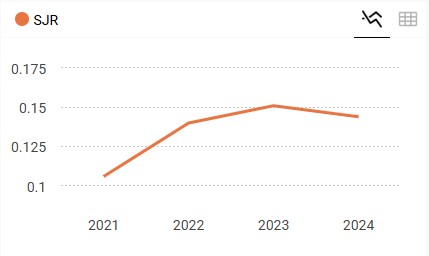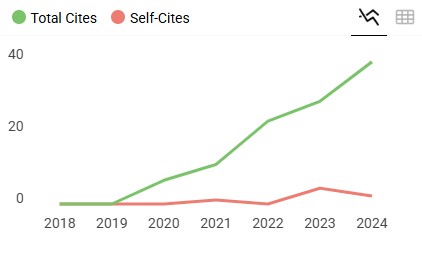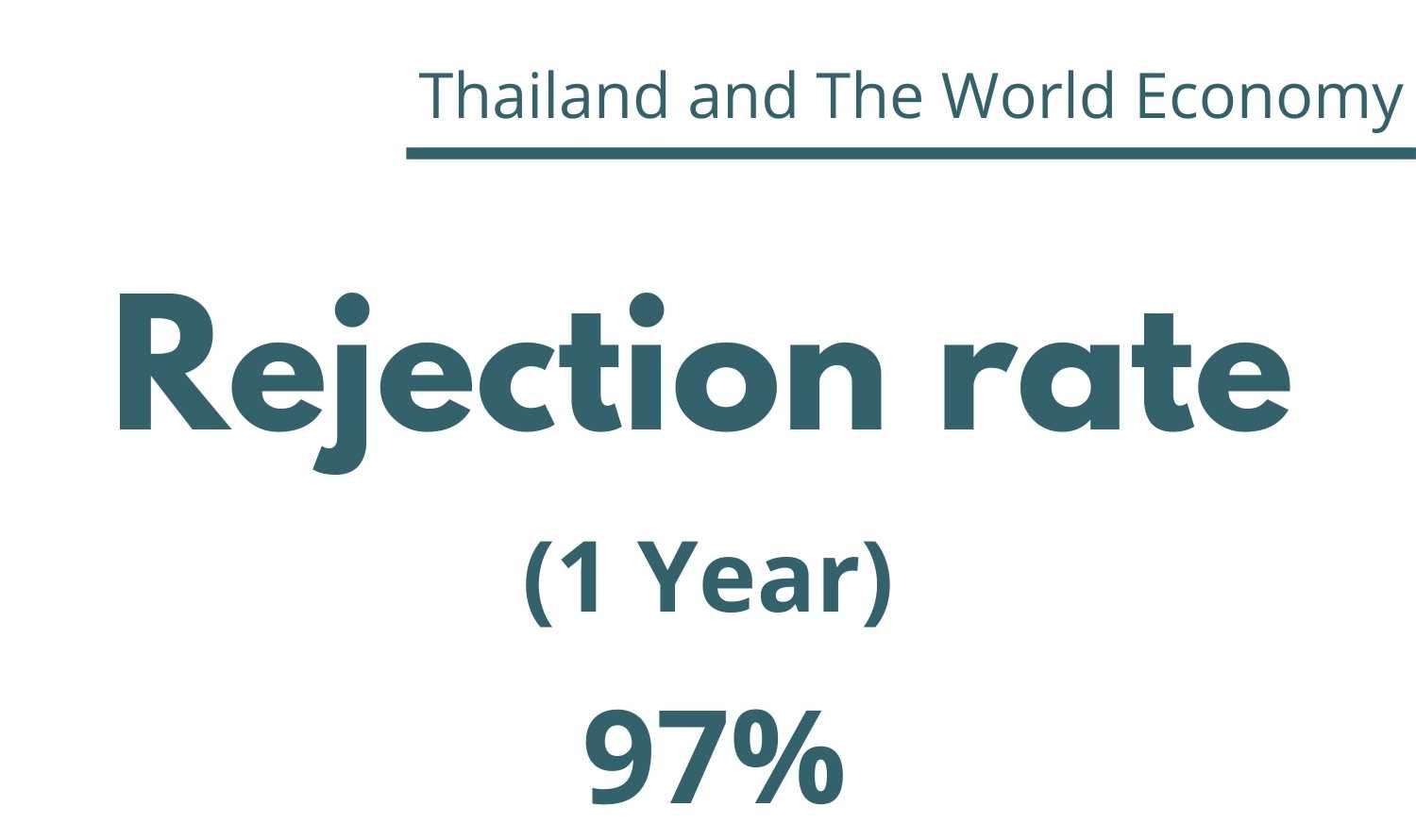Empathy and Social Entrepreneurial Intention: The Role of Social Entrepreneurial Self-efficacy and Institution Support Structure
Keywords:
Institutional support structure, Social entrepreneurial intention, Empathy, Social entrepreneurial self-efficacy.Abstract
The article aims to develop a comprehensive framework to explain how empathy impacts social entrepreneurial intention. Specifically, this article answers two questions: How does social entrepreneurial self-efficacy mediate the relationship between empathy and social entrepreneurial intention? and How is the nexus between empathy and social entrepreneurial intention moderated by institutional support structure? A sample of 502 university students in Vietnam was utilized to examine the research model. Hayes’ PROCESS macro, especially Model 4 and Model 5, was respectively employed to estimate the mediating role of social entrepreneurial self-efficacy and the moderating effect of the institution’s support structure in the nexus of empathy and social entrepreneurial intention. Our study found that empathy has a direct positive effect on social entrepreneurial intention. Furthermore, we discovered that this effect is amplified by social entrepreneurial self-efficacy and the support provided by institutions. Our findings shed light on the complex interplay between empathy, self-efficacy, and institutional support in shaping social entrepreneurial intention. This knowledge can help educators, policymakers, and aspiring entrepreneurs foster a more supportive and empathetic ecosystem for social innovation.
References
Agostini, M.R., Bitencourt, C.C., & Vieira, L.M. (2019). Social innovation in Mexican coffee production: Filling ‘institutional voids’. International Review of Applied Economics, 34 (5), 607-625.
Ajzen, I. (1991). The Theory of Planned Behavior. Organizational Behavior and Human Decision Processes, 50 (2), 179-211.
Aloulou, W.J. & Algarni, E.A. (2022). Determinants of social entrepreneurial intention: empirical evidence from the Saudi context. Social Enterprise Journal, 18(4), 605-625.
Bacq, S. & Alt, E. (2018). Feeling capable and valued: A prosocial perspective on the link between empathy and social entrepreneurial intentions. Journal of Business Venturing, 33(3), 333-350.
Bandura, A. (1982). Self-efficacy mechanism in human agency. American Psychologist, 37(2), 122-147.
Bano, S., Cisheng, W., Khan, A.N. & Khan, N.A. (2019). WhatsApp use and student's psychological well-being: Role of social capital and social integration. Children and Youth Services Review, 103(1), 200-208.
Björk, F., Hansson, J., Lundborg, D., & Olofsson, L. E. (2014). An ecosystem for social innovation in Sweden. A strategic research and innovation agenda. Lund: Lund University.
British Council, ESCAP, & CIEM. (2019). Social enterprise in Vietnam. Hanoi: British Council Vietnam. Retrieved from https://www.britishcouncil.vn/sites/default/
files/social-enterprise-in-vietnam.pdf
Chen, A.M., Kiersma, M.E., Yehle, K.S. & Plake, K.S. (2015). Impact of the Geriatric Medication Game(R) on nursing students' empathy and attitudes toward older adults. Nurse Education Today, 35 (1), 38-43.
Chiengkul, W., Tantipanichkul, T., Boonchom, W., Phuangpornpitak, W. & Suphan, K. (2023). Social entrepreneurship of small and medium-sized entrepreneurs in Thailand: Influence of institutional environment, entrepreneurial passions, and entrepreneurial self-efficacy. Social Enterprise Journal, 19(4), 370-389.
Decety, J. & Jackson, P.L. (2004). The functional architecture of human empathy. Behavioral and Cognitive Neuroscience Reviews, 3 (2), 71-100.
Do, M.N. (2022). The key for success in the value chain of a social entrepreneur in Vietnam. Journal of Enterprising Communities: People and Places in the Global Economy, 17(6), 1193-1208.
Duong, C.D. (2021). Exploring the link between entrepreneurship education and entrepreneurial intentions: The moderating role of educational fields. Education + Training, 64(7), 869–891.
Duong, C.D. (2023). Karmic beliefs and social entrepreneurial intentions: A moderated mediation model of environmental complexity and empathy. Journal of Open Innovation: Technology, Market, and Complexity, 9 (1), 100022.
Dwivedi, A. & Weerawardena, J. (2018). Conceptualizing and operationalizing the social entrepreneurship construct. Journal of Business Research, 86(C), 32-40.
Erpf, P., Tekula, R. & Neuenschwander, J. (2019). Clustering social enterprises: An empirically validated taxonomy. Social Enterprise Journal, 15 (3), 397-420.
Erturgut, R. & Soysekerci, S. (2012). Social entrepreneurship effect on educational activity: The research in Turkey Universities. Procedia - Social and Behavioral Sciences, 46, 3954-3958.
Ghazali, E.M., Mutum, D.S. & Javadi, H.H. (2021). The impact of the institutional environment and experience on social entrepreneurship: A multi-group analysis. International Journal of Entrepreneurial Behavior & Research, 27 (5), 1329-1350.
Gupta, P., Chauhan, S., Paul, J., & Jaiswal, M. P. (2020). Social entrepreneurship research: A review and future research agenda. Journal of Business Research, 113, 209-229.
Hair, J. F., Anderson, R. E., Tatham, R. L., & Black, W. C. (1998). Multivariate data analysis. Prentice Hall, Upper Saddle River, New Jersey.
Hassan, H. M. K. (2020). Intention towards social entrepreneurship of university students in an emerging economy: The influence of entrepreneurial self-efficacy and entrepreneurship education. On the Horizon, 28(3), 133-151.
Hayes, A. F. (2018). Introduction to mediation, moderation, and conditional process analysis: A regression-based approach. New York, NY: The Guilford Press.
Hockerts, K. (2015). The social entrepreneurial antecedents scale (SEAS): A validation study. Social Enterprise Journal, 11(3), 260-280.
Hockerts, K. (2017). Determinants of social entrepreneurial intentions. Entrepreneurship Theory and Practice, 41(1), 105-130.
Hu, L., & Bentler, P. (1999). Cutoff criteria for fit indices in covariance structure analysis: conventional criteria versus new alternatives. Structural Equation Modeling, 6, 1-55.
Ip, C. Y., Liang, C., Lai, H. J., & Chang, Y. J. (2020). Determinants of social entrepreneurial intention: An alternative model based on social cognitive career theory. Nonprofit Management and Leadership, 31(4), 737-760.
Ip, C. Y., Wu, S.-C., Liu, H.-C., & Liang, C. (2018). Social entrepreneurial intentions of students from Hong Kong. The Journal of Entrepreneurship, 27(1), 47-64.
Kline, R. B. (2016). Principles and practice of structural equation modeling. New York, NY: Guilford publications.
Krueger, J. N. F., Reilly, M. D., & Carsrud, A. L. (2000). Competing models of entrepreneurial intentions. Journal of Business Venturing, 15(5-6), 411-432.
Lacap, J. P. G., Mulyaningsih, H. D., & Ramadani, V. (2018). The mediating effects of social entrepreneurial antecedents on the relationship between prior experience and social entrepreneurial intent. Journal of Science and Technology Policy Management, 9(3), 329-346.
Le, Q. H., Quach, M. H., & Tran, H. L. (2022). Credit composition and income inequality in Vietnam: An empirical analysis. Journal of Economics and Development, 24(4), 365-377.
Liñán, F., & Chen, Y. W. (2009). Development and cross–cultural application of a specific instrument to measure entrepreneurial intentions. Entrepreneurship Theory and Practice, 33(3), 593-617.
Loan, L. T., Doanh, D. C., Thang, H. N., Viet Nga, N. T., Van, P. T., & Hoa, P. T. (2021). Entrepreneurial behaviour: The effects of the fear and anxiety of Covid-19 and business opportunity recognition. Entrepreneurial Business and Economics Review, 9(3), 7-23.
Lukman, S., Bao, P. X., Kweku‐Lugu, B., Arkorful, V. E., Latif, A., Gadabu, A.,
Sadiq, M. A. (2020). Diasporan students social entrepreneurship intention: The moderating role of institutional support. Journal of Public Affairs, 21(1).
Maheshwari, G., & Kha, K. L. (2022). Investigating the relationship between educational support and entrepreneurial intention in Vietnam: The mediating role of entrepreneurial self-efficacy in the theory of planned behavior. The International Journal of Management Education, 20(2).
Mair, J., & Martí, I. (2006). Social entrepreneurship research: A source of explanation, prediction, and delight. Journal of World Business, 41(1), 36-44.
Mair, J., & Noboa, E. (2006). Social entrepreneurship: How intentions to create a social venture are formed. In J.Mair, J.Robinson , & K. Hockerts (Eds.), Social Entrepreneurship (1st ed., pp. 121-135). New York: Palgrave Macmillan
Meoli, A., Fini, R., Sobrero, M., & Wiklund, J. (2020). How entrepreneurial intentions influence entrepreneurial career choices: The moderating influence of social context. Journal of Business Venturing, 35(3).
Miller, T. L., Grimes, M. G., McMullen, J. S., & Vogus, T. J. (2012). Venturing for others with heart and head: How compassion encourages social entrepreneurship. Academy of Management Review, 37(4), 616-640.
Neneh, B. N. (2019). From entrepreneurial intentions to behavior: The role of anticipated regret and proactive personality. Journal of Vocational Behavior, 112, 311-324.
Nguyen, T. L., Phan, H.M., &Bui, B.K. (2016). Liabilities and the impacts on financial performance of the Vietnamese listed small and medium-sized enterprises. Journal of Economics and Development, 18(3), 41-63.
Nicholls, A. (2010). The legitimacy of social entrepreneurship: Reflexive isomorphism in a pre-paradigmatic field. Entrepreneurship Theory and Practice, 34(4), 611–633.
Nickols, S. Y., & Nielsen, R. B. (2011). “So Many People are Struggling”: Developing social empathy through a poverty simulation. Journal of Poverty, 15(1), 22-42.
Nikiforou, A. I., Lioukas, S., & Voudouris, I. (2020). Network structure and firm-level entrepreneurial behavior: The role of market and technological knowledge networks. Journal of Business Research, 106, 129-138.
Nowiński, W., & Haddoud, M. Y. (2019). The role of inspiring role models in enhancing entrepreneurial intention. Journal of Business Research, 96, 183-193.
Packard, M. D., & Burnham, T. A. (2021). Do we understand each other? Toward a simulated empathy theory for entrepreneurship. Journal of Business Venturing, 36(1).
Prabhu, G. N. (1999). Social entrepreneurial leadership. Career Development International, 4(3), 140-145.
Preston, S. D., Bechara, A., Damasio, H., Grabowski, T. J., Stansfield, R. B., Mehta, S., & Damasio, A. R. (2007). The neural substrates of cognitive empathy. Social Neuroscience, 2(3-4), 254-275.
Shepherd, D. A., Seyb, S., & Williams, T. A. (2023). Empathy-driven entrepreneurial action: Well-being outcomes for entrepreneurs and target beneficiaries. Journal of Business Venturing, 38(2).
Sousa-Filho, J. M. d., Matos, S., da Silva Trajano, S., & de Souza Lessa, B. (2020). Determinants of social entrepreneurial intentions in a developing country context. Journal of Business Venturing Insights, 14.
Thi Tuyet Mai, N. (2019). An investigation into the relationship between materialism and green purchase behavior in Vietnam and Taiwan. Journal of Economics and Development, 21(2), 247-258.
Tiwari, P., Bhat, A. K., & Tikoria, J. (2017). Predictors of social entrepreneurial intention: An empirical study. South Asian Journal of Business Studies, 6(1), 53-79.
Turker, D., & Sonmez Selcuk, S. (2009). Which factors affect entrepreneurial intention of university students?. Journal of European Industrial Training, 33(2), 142-159.
Ukil, M. I., Almashayekhi, A., & Ullah, M. S. (2023). Feeling compassion and responsible but not starting a social venture: role of empathy and moral obligation in social entrepreneurial intention. Society and Business Review, 19(1), 132-154.
Urban, B., & Kujinga, L. (2017). The institutional environment and social entrepreneurship intentions. International Journal of Entrepreneurial Behavior & Research, 23(4), 638-655.
Usman, S., Masood, F., Khan, M. A., & Khan, N. u. R. (2021). Impact of empathy, perceived social impact, social worth and social network on the social entrepreneurial intention in socio-economic projects. Journal of Entrepreneurship in Emerging Economies, 14(1), 65-92.
Youn, H., Xu, J., & Kim, J.-H. (2021). Consumers’ perceptions, attitudes and behavioral intentions regarding the symbolic consumption of auspiciously named foods. International Journal of Hospitality Management, 98.
Younis, A., Xiaobao, P., Nadeem, M. A., Kanwal, S., Pitafi, A. H., Qiong, G., & Yuzhen, D. (2020). Impact of positivity and empathy on social entrepreneurial intention: The moderating role of perceived social support. Journal of Public Affairs, 21(1).
Yousaf, U., Ali, S. A., Ahmed, M., Usman, B., & Sameer, I. (2021). From entrepreneurial education to entrepreneurial intention: A sequential mediation of self-efficacy and entrepreneurial attitude. International Journal of Innovation Science, 13(3), 364-380.
Zahra, S. A., Gedajlovic, E., Neubaum, D. O., & Shulman, J. M. (2009). A typology of social entrepreneurs: Motives, search processes and ethical challenges. Journal of Business Venturing, 24(5), 519-532.
Zhang, Y., Trusty, J., Goroshnikova, T., Kelly, L., Kwong, K. K., McGuire, S. J. J., . . . Tang, R. (2021). Millennial social entrepreneurial intent and social entrepreneurial self-efficacy: A comparative entrepreneurship study. Social Enterprise Journal, 17(1), 20-43.
Downloads
Published
How to Cite
Issue
Section
Categories
License
Copyright (c) 2024 Thailand and The World Economy

This work is licensed under a Creative Commons Attribution-NonCommercial-NoDerivatives 4.0 International License.










